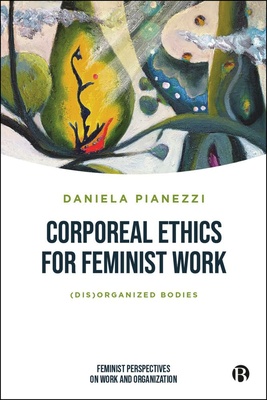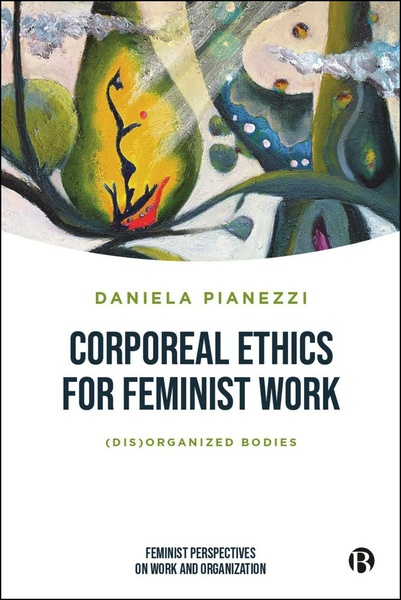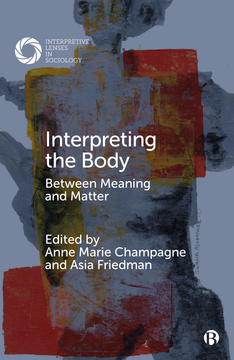Published
Jan 24, 2025Page count
178 pagesBrowse the series
Feminist Perspectives on Work and OrganizationISBN
978-1529241518Dimensions
234 x 156 mmImprint
Bristol University PressPublished
Jan 24, 2025Page count
178 pagesBrowse the series
Feminist Perspectives on Work and OrganizationISBN
978-1529241525Dimensions
234 x 156 mmImprint
Bristol University PressPublished
Jan 24, 2025Page count
178 pagesBrowse the series
Feminist Perspectives on Work and OrganizationISBN
978-1529241525Dimensions
234 x 156 mmImprint
Bristol University PressWhat does it mean to be a feminist? What can feminism say about ourselves, the work we do, and our ways of living together?
This book draws on the work of Fraser, Butler, and Braidotti to examine how societal and organizational processes shape and are shaped by our perception of work, value, and identity. Disrupting the long-established mind–body dualism, the book reveals its impact on our understanding of value, raising critical questions about how different forms of feminism influence work practices and recognition.
With a foreword by Luigi Maria Sicca and an afterword by Melissa Tyler, this is a unique and insightful analysis that sparks critical reflection, offering a foundation for corporeal ethics to drive meaningful change in organizations and society.
“We are reminded daily of the vulnerability and fragility of our own and other bodies. Yet, Pianezzi reminds us there is power within and between bodies. This wonderful book offers us a detailed roadmap of feminist thought, challenging us to return to the body to better understand our ethical responsibility to others.” Leanne Cutcher, University of Sydney
“Quoting Derrida, this book is like ‘the furrow in the sand’.” Luigi Maria Sicca, University of Naples Federico II
Daniela Pianezzi is Associate Professor in Organization Studies at the University of Verona.
Foreword by Luigi Maria Sicca
‘Piango’ [‘I Weep’]
1. Introduction
2. The (Un)productive Body
3. The (Re)productive Body
4. The Post-Modern Body
5. The Post-Human Body
6. A Proposal for Corporeal Ethics?
7. Conclusions
'Munera'
Afterword by Melissa Tyler










